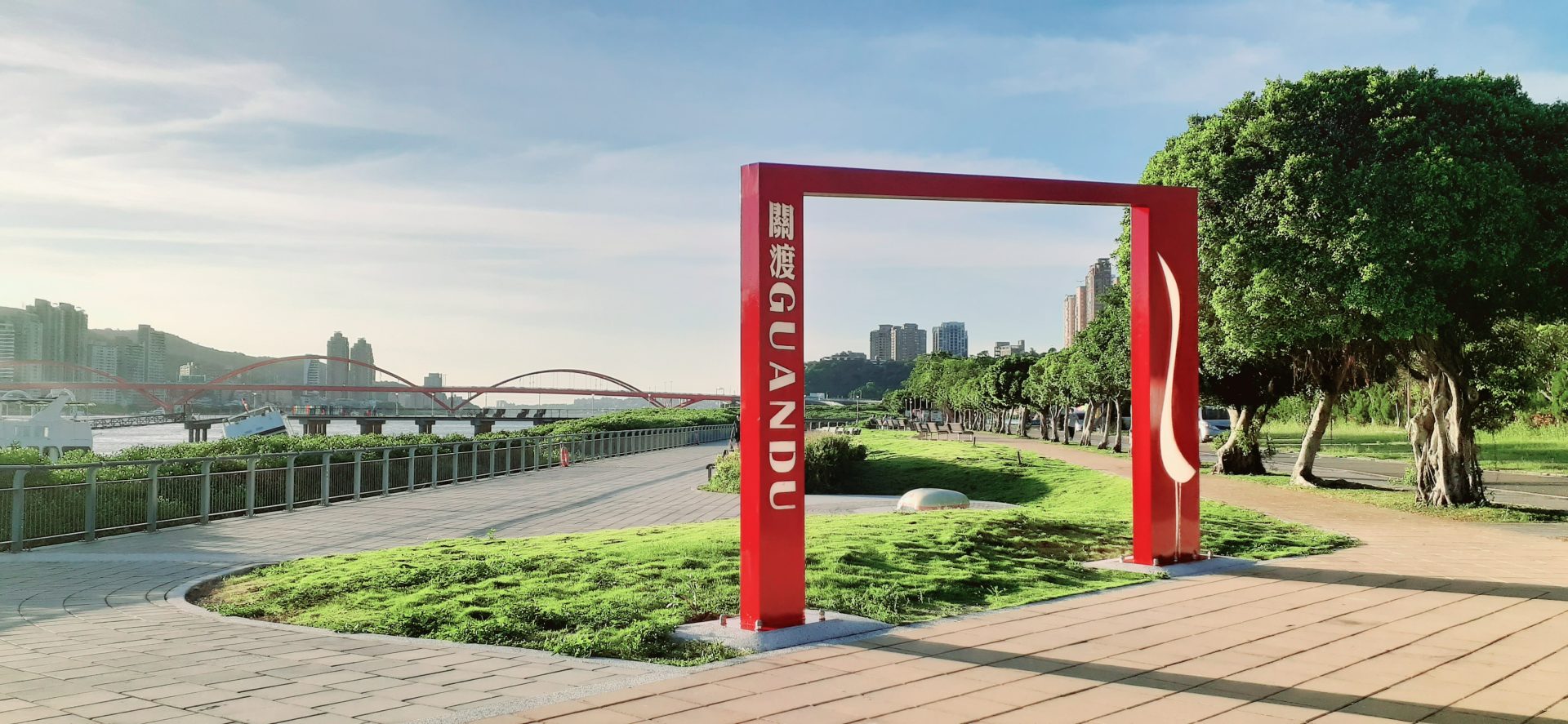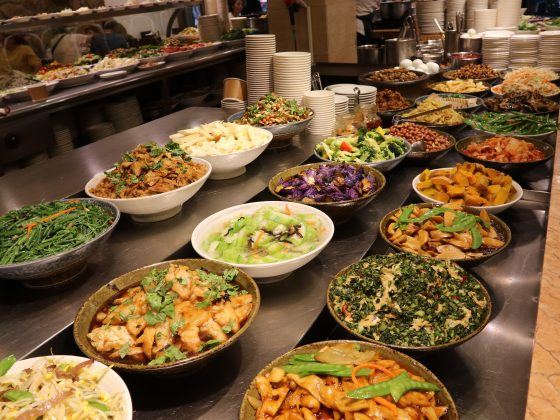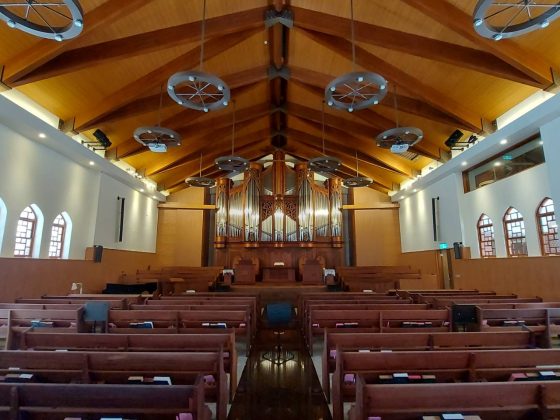Author Hsin Ya Teng, Louis Zhang
Photographer Zifilm Studio, Louis Zhang, Guandu Nature Park, Wild Bird Society of Taipei
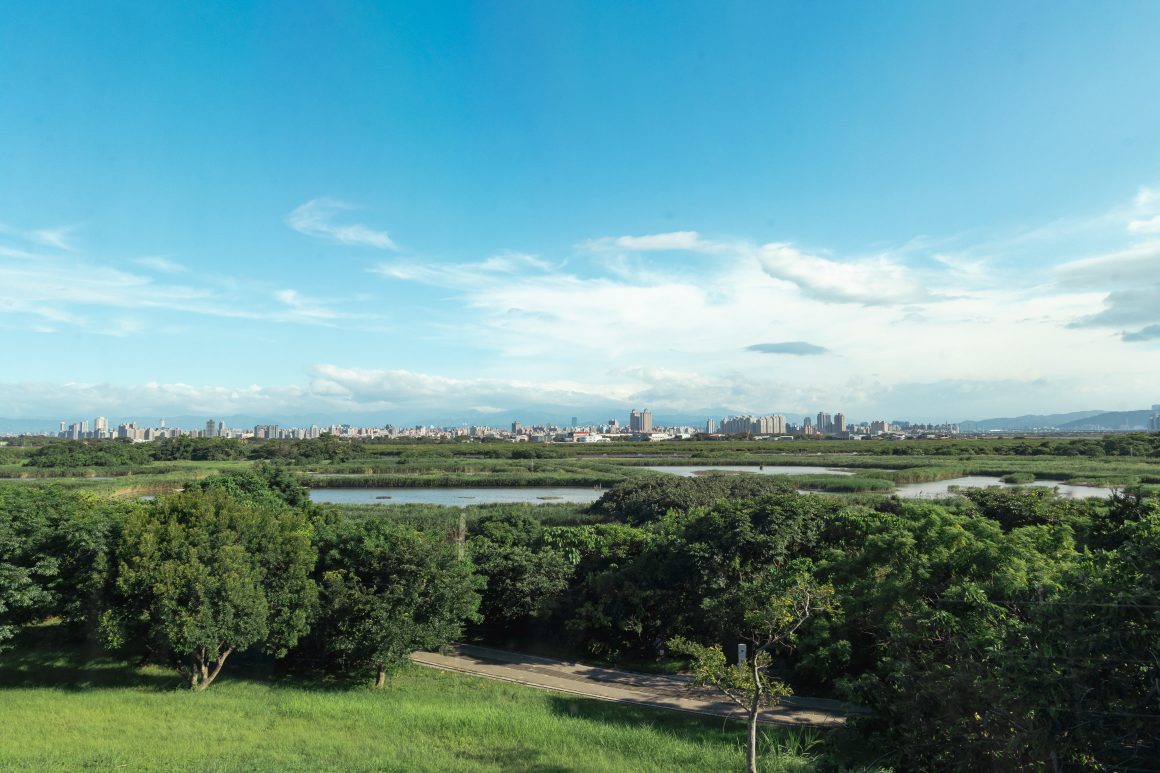
Welcome to Taipei, the vibrant capital city of Taiwan, where towering skyscrapers and bustling streets make for an electrifying cityscape. Amidst this urban jungle, Guandu (關渡) is a tranquil sanctuary where you can truly breathe and connect with nature while immersing yourself in the local culture.
Located in the Beitou District of Taipei City, Guandu was formerly known as “Gandoumen (甘豆門).” This charming locale is embraced by the majestic Guanyinshan (觀音山, Mt. Guanyin) and Datunshan (大屯山, Mt. Datun), while its gaze is fixed upon the meandering Tamsui River. Its location at the confluence of the Tamsui and Keelung Rivers creates a flourishing wetland ecosystem, making it a haven for diverse bird species during their migratory stopovers, thus earning its reputation as a vital avian sanctuary.
The fertile Guandu Plain is also Taipei’s only large-scale urban agricultural area, accounting for 90% of the city’s agricultural land, with hundreds of hectares of sweeping rice paddies. Here, you are immersed in the time-honored traditions of rice cultivation, where the prolific cycle of planting, harvesting, threshing and milling are experienced season after season. As visitors wander through the vast emerald rice fields, the rhythmic dance of rice swaying with the gentle breeze presents a unique escape from the city’s hustle.
Guandu’s natural charm and environmental significance attract residents and visitors alike to bike along the Guandu waterfront on weekends and holidays. The riverside bikeway from Guandu to Tamsui provides a front-row seat for the beautiful scenery, while allowing travelers to experience many of the famous sites Guandu has to offer.
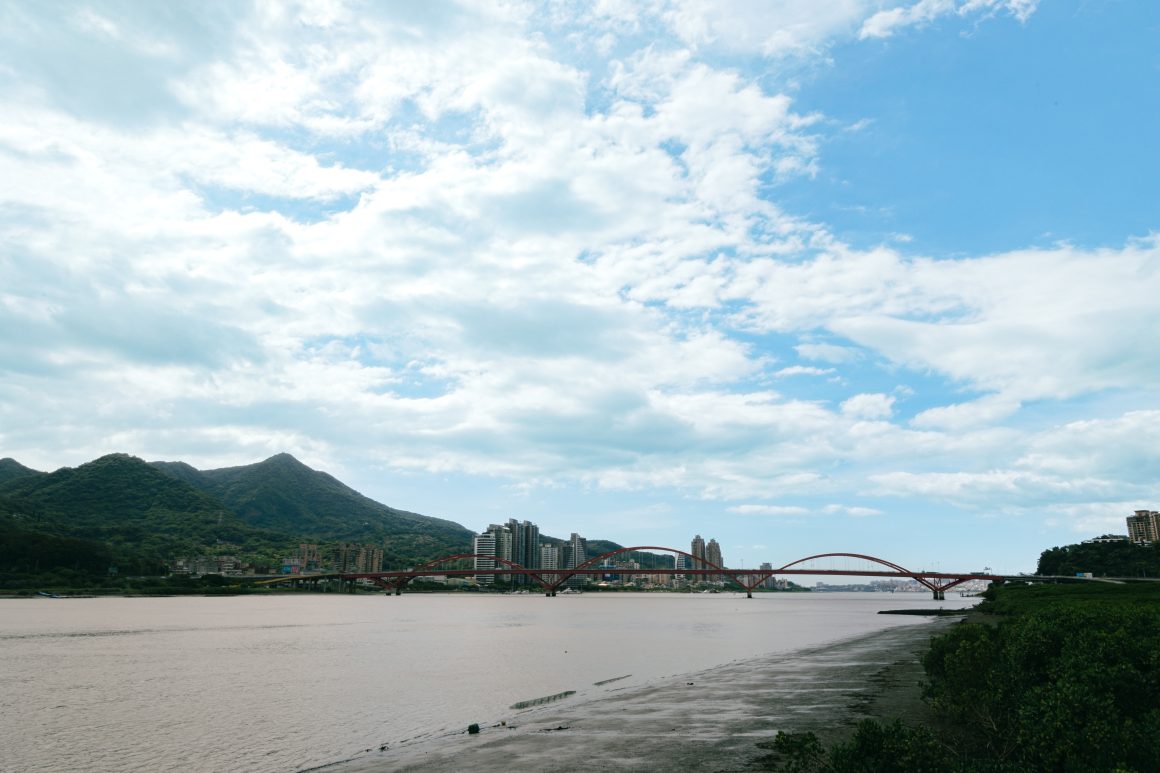
Pedal to Explore: Embarking on an Eco Tour
Guandu Nature Park 關渡自然公園
Guandu Nature Park has always played an important role in the wetland ecosystem. The park not only provides shelter for a wide variety of fish, shrimp and crabs, but also serves as a shelter to rest or stay for the whole winter for birds migrating south. Birds such as the black-winged stilt (高蹺鴴) and green-winged teal (小水鴨) are frequent avian visitors to the park.
To preserve Guandu’s wetland, the Taipei City Government established the Guandu Nature Park in 1996. The park is responsible for habitat maintenance and conservation research, as well as the promotion of ecological education. Visitors can sign up for a guided tour of the wetland to learn more about the wetland’s history and its diverse flora and fauna. Bird enthusiasts can join informative workshops with diverse topics about birds organized by the Wild Bird Society of Taipei (台北市野鳥學會). On weekends, visitors are encouraged to head to the second floor of the Nature Center to take advantage of the bird-watching equipment with the help of interpreters to capture graceful flyers through the lens.
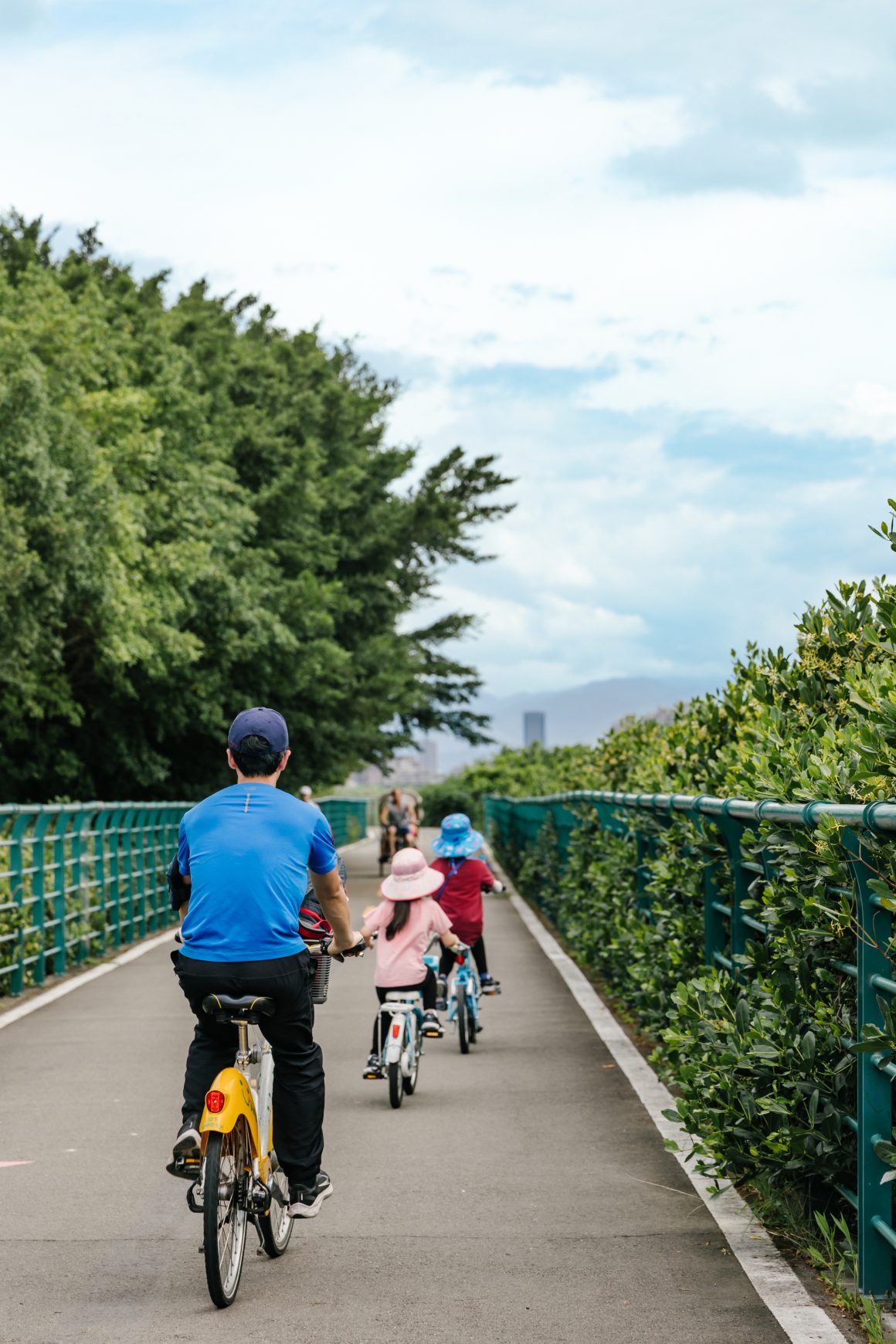
Guandu Riverside Park 關渡水岸公園
Adjacent to Guandu Temple and Guandu Fishing Port, Guandu Riverside Park spans approximately 6.3 hectares. In addition to pedestrian walkways and the riverside bikeway, the park also features recently renovated Guandu Wharf, which serves as one of the Taipei River Cruise (台北市藍色水路) embarkation points for rides to other wharves along the route. Visitors can set out on a delightful journey and experience the charming river scenery, whether it’s during the day or under the enchanting night lights.
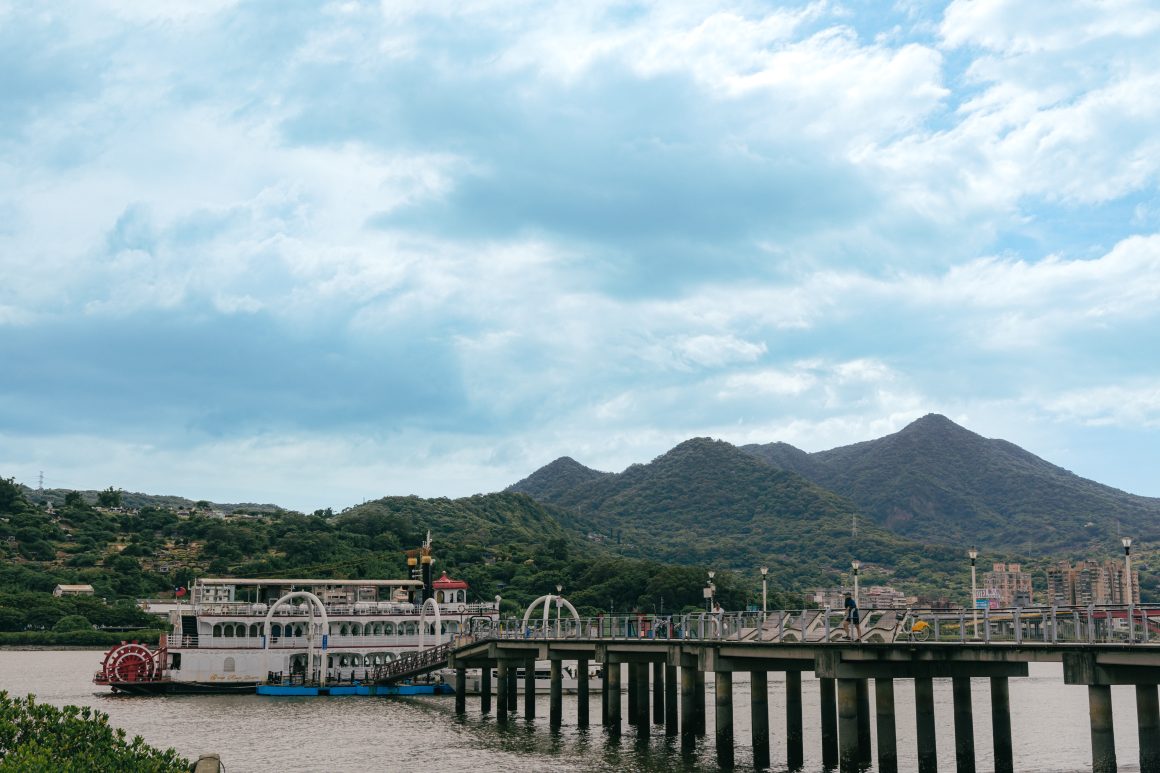
In addition, Guandu Riverside Park has been adorned with artistic installations and deck chairs, providing a relaxing setting for visitors to enjoy art and the scenic beauty of the river after a bike ride. During the day, visitors can observe the rich wetland ecosystem in the intertidal zone. In the evening, they can enjoy the picturesque landscape of Bali’s Mt. Guanyin. From dawn to dusk, the riverside panorama offers ever-changing delights, making every moment a unique and captivating experience.
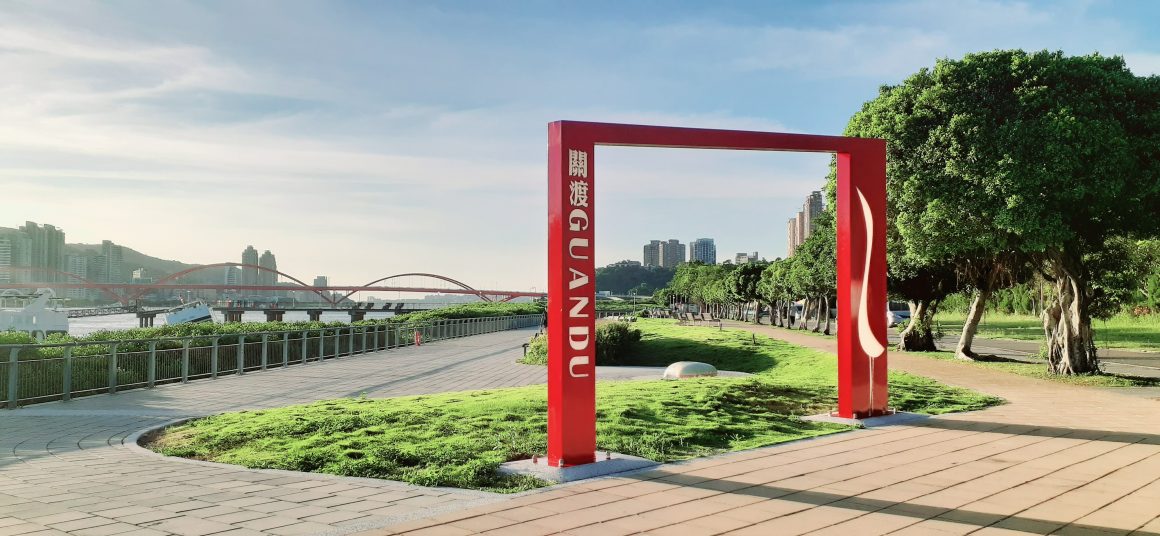
Guandu Temple: A Journey of Blessings, History, and Architectural Aesthetics
Guandu Temple boasts a rich history, with a legacy spanning over three centuries, making it the oldest Mazu (媽祖) temple in northern Taiwan. Looking out from the temple, one can see fishing boats docked at Guandu Fishing Port, a reminiscence of a bygone era when Taipei’s forefathers fished for their livelihood. Before heading out, they would pray to the sea goddess Mazu, seeking her protection and blessings for safety and prosperity.
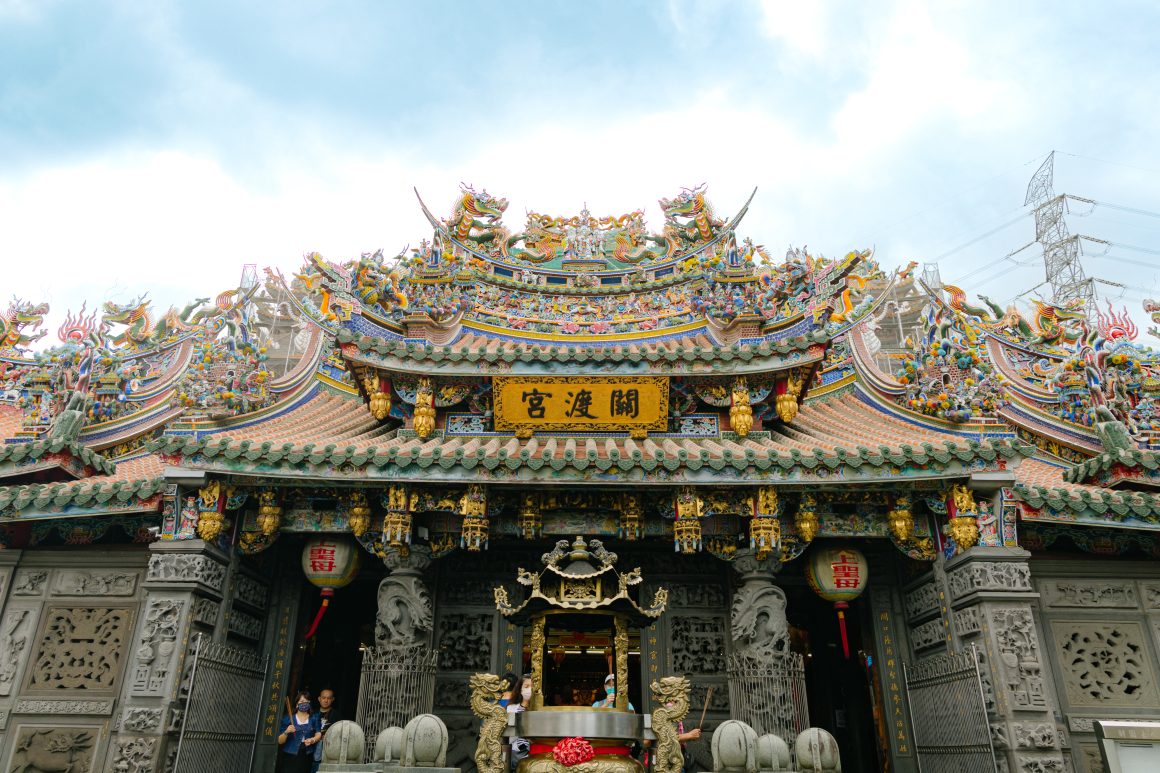
The architectural aesthetics of the temple are truly worthy of appreciation. Despite several renovations, the temple still boasts numerous stone carvings from different eras, such as dragon, flower and bird columns, as well as stone lions. These intricate stone carvings, displayed as murals, not only tell the stories of Mazu, but also provide insight into the historical context of the temple through their materials and carving techniques.
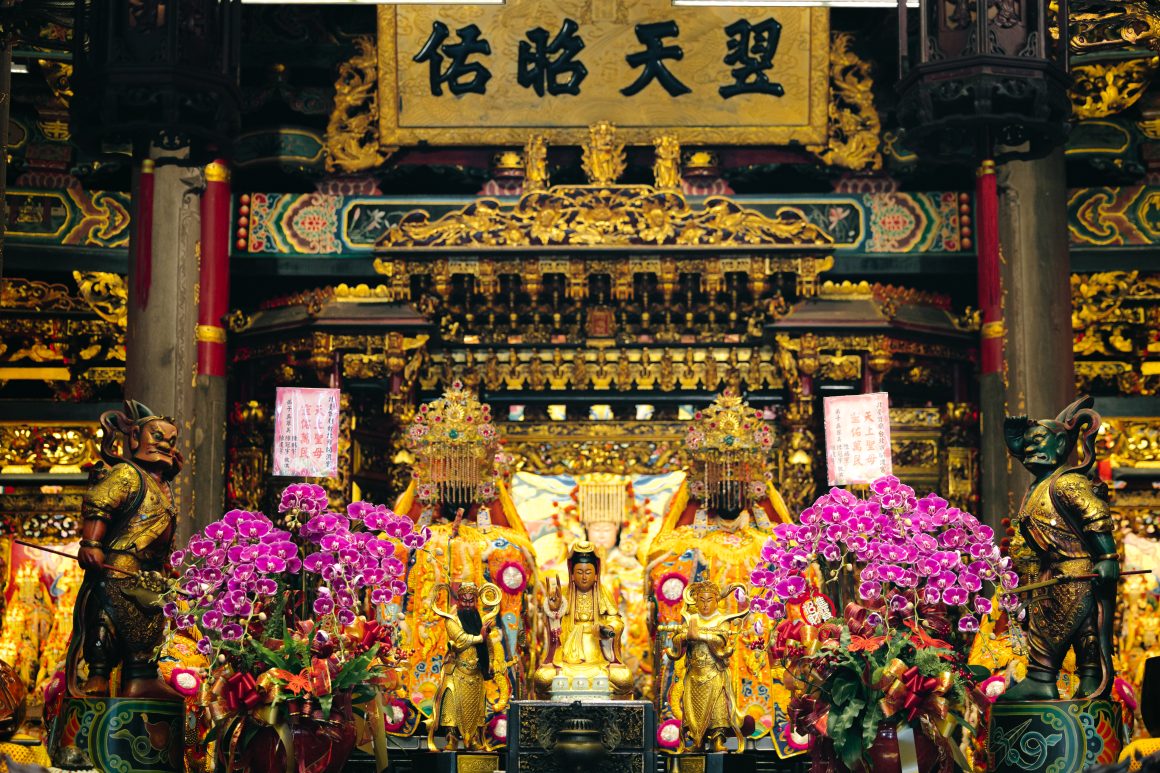
From the beams and pillars to the window frames, the temple is adorned with captivating stories. Some wooden carvings tell tales of folklore, while others depict floral and bird patterns that symbolize good fortune and blessings. The roof itself is also a sight to be seen; visitors can find dragon, phoenix, and floral decorations, meticulously crafted through the technique of “cut-and-paste,” also known as the fragmented ceramic art. Next time you visit, take a moment to appreciate the temple’s architectural adornments, as they represent the aesthetic essence of Taiwanese temples.
Taipei National University of the Arts: Cradle of Artistic Talent
A seven-minute bike ride from MRT Guandu Station will take you to the entrance of Taipei National University of the Arts (國立台北藝術大學, TNUA). Nestled on a picturesque hillside, the campus offers a bird’s-eye view of the serene Guandu Plain as you pedal uphill. Watch in awe as the distinctive architecture of the colleges gradually reveals itself.
-1160x773.jpg)
TNUA was established in 1982 as the former National Institute of the Arts (國立藝術學院). Today, the university houses seven colleges, including the School of Music, School of Fine Arts, School of Theatre Arts, School of Dance, School of Film & New Media, School of Cultural Resources, and School of Humanities. With an extensive network of accomplished alumni flourishing in Taiwan’s cultural and artistic scene, TNUA has undoubtedly earned its reputation as a dream institution for aspiring talents in the arts and humanities.
An array of cultural and artistic spaces is available to art enthusiasts, including exhibition halls and bookstores that provide rich sources of inspiration and ample room for creativity. One of the gems here is the Kuandu Museum of Fine Arts, where museum-goers can admire the works of local and international artists. The museum also offers hands-on craft workshops. The opportunities to appreciate different art forms and participate in immersive experiences are an indication that art is already seamlessly woven into the daily lives of the locals.
Unveiling the Splendor of Fall — Discover Guandu’s Annual Festivals
Guandu hosts an array of annual festivals, most of which focus on environmental and conservation issues. Among these, the renowned Guandu International Nature Art Festival and the highly anticipated Taipei International Birdwatching Fair stand out as true highlights. These remarkable events enthrall nature art enthusiasts and birdwatchers. And what better time to indulge in outdoor activities than on a picturesque fall day?
Guandu International Nature Art Festival
關渡國際自然藝術季
Every year, the Guandu International Nature Art Festival takes center stage in Guandu Nature Park, and has captivated audiences since its inception in 2006. From September to the end of the year, the festival gathers artists from around the world to create artworks on-site using natural materials. The resulting works not only embody artistic concepts and aesthetics, but also carry powerful messages of environmental awareness.

The festival also highlights public participation, which is the best form of support for the local community and artists. Events such as the grand opening, artists’ workshops, art tours, cultural performances, nature tours, and farmers’ markets provide a delightful range of experiences. Through these artistic and cultural activities, the festival serves as a medium to convey the beauty of the harmonious relationship between man and nature.
Taipei International Birdwatching Fair
台北國際賞鳥博覽會
Every winter, when migratory birds from the north seek refuge from the cold, Guandu becomes their ideal site to stopover during their migration or spend the winter. Autumn and winter are the perfect seasons to observe these avian visitors. That is why birdwatchers cannot miss the annual Taipei International Birdwatching Fair organized by the Wild Bird Society of Taipei (台北市野鳥學會) at Guandu Nature Park. The event attracts not only local visitors, but also birdwatching enthusiasts from abroad.
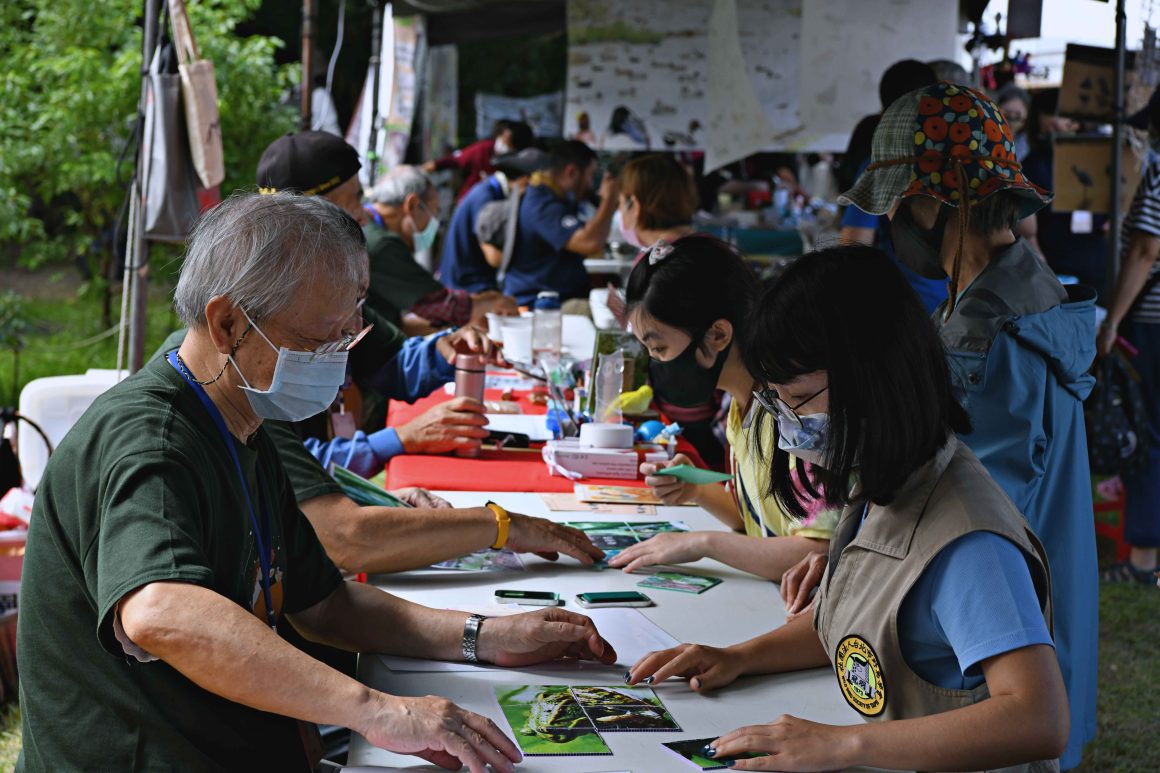
This year’s theme is “Endemic Birds of Formosa (寶島特有種).” Amidst the environmental challenges many species face for survival, the theme aims to raise awareness about Taiwan’s unique species. It serves as a reminder that these precious avian friends have always lived among us and need our conscious efforts to protect them.
The fair also offers a variety of activities, including games, film screenings, lectures, and workshops. These engaging events offer participants the opportunity to deepen their understanding of birds, birdwatching activities, and topics related to ecological conservation.
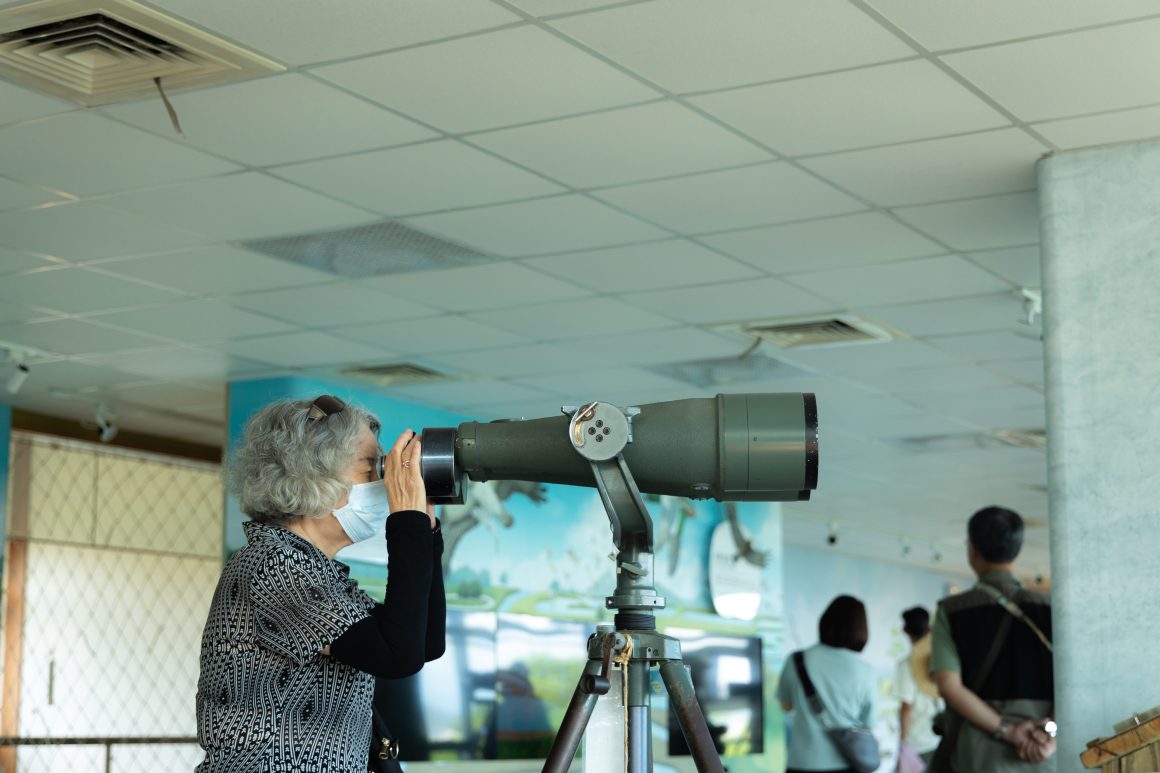
Guandu is the radiant emerald nestled in the cityscape. Encompassing a rich ecosystem and cultural resources, it offers the perfect escape to unwind and savor the tranquility where you can immerse yourself in the tapestry of local customs and the warm embrace of the community. Just a 20-minute drive from downtown, Guandu is reckoned as Taipei’s natural oasis, where you can experience the verdant facets of this enchanting city. Whether you’re a resident or a visitor, Guandu promises a delightful journey of exploration and relaxation.
🎨Guandu International Nature Art Festival
🦆Taipei International Birdwatching Fair
This article is reproduced under the permission of TAIPEI. Original content can be found on the website of Taipei Travel Net (www.travel.taipei/en).

